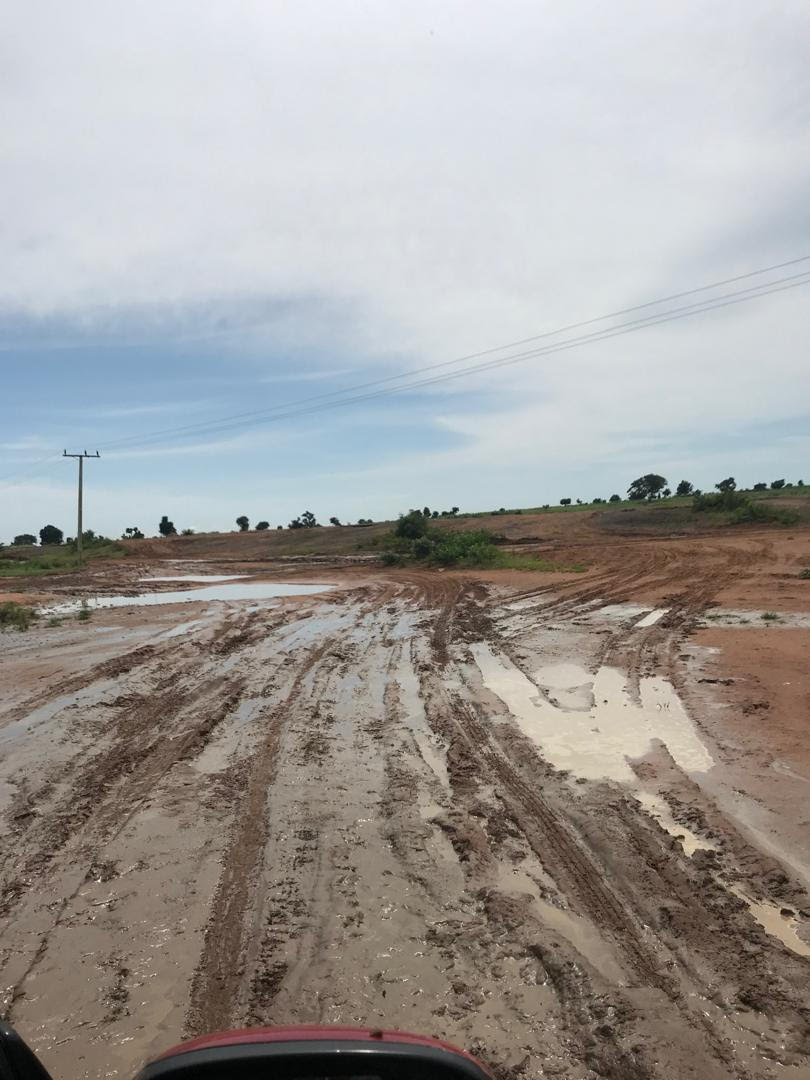1.5K
By Abubakar A. Bukar
The level of dilapidation from Numan is just indescribable. When you veer off the rubbles that is hitherto a tarred road to escape dam-like potholes, meandering into farmlands, you risk getting stuck in the mud or colliding with oncoming vehicles including trucks, or getting splashed with muddy water on the narrow passage.
You wonder whether these people are governed, where are they governed from, and who represent them at the federal executive and legislative bodies. These industrious farmers, however, appear accustomed to the neglect, resigning to fate, and obviously to their farmlands too.
Even Jalingo, a whole state capital, doesn’t give an impression of modernisation or democratisation. No any newly-executed developmental projects are visible. No hustles and bustles of city life. Nothing. Even for the optics.
And the media, both state-owned and otherwise, seem to have signed a pact with the people and the government to perpetuate a culture of silence and passivity. With digital revolution, one expects the youths to leverage their social media handles, crying fouls till they are heard and heeded. Alas, they too seem to be in cahoots, enjoying the dividends of co-optation.
Few days back North East Development Commission was in the eye of the storm. As it ought to be. For the past ten days I had been in Jalingo I could see neither its name nor its presence on anything. As if it is non-existent. So people are right to critique its performance vis à vis its mandate.
Where is the location of the allocations? How commensurate is the output to the input? Or is it like the Niger Delta Development Commission – where a whole institution is strangled by some tiny self-serving elites at the expense of the masses?
Along the road, Gombe seems to be an alluring spectacle. Good road network welcomes a passer-by, with the sight of Kumo, a beautifully-planned small town, enticing one to while away before moving on. Kaltungo reminds one of its novelist son, Helon Habila, who relived its topography and the snakes dotting it in Measuring Time.
Despite the semblance of good governance, Gombe youths, including my Ohio-based friend, Nura, are some of the “noisiest” on social media platforms, demanding for more. Perhaps, the “ghost” of Dadiyata looms larger in Taraba than it does in its neighbourhood.
But one thing that never fails to strike an observer in Jalingo is the spirit of peaceful coexistence among the inhabitants. Their ethnic and religious fault lines seems to be at rear of their social interactions.
Swamped by roadside food vendors, a searcher of a fairly decent restaurant is always welcomed by faces, names and dresses that suggest that the people manning these places are mixture of Muslims and Christians speaking varying languages but united by Hausa as lingua franca. Perhaps it’s a market strategy. Nonetheless a cooperation booster. And when last was I in a state capital where food and meat are as that cheap?
In the cacophony of voices boosting the patronage of these restaurants one even curiously eavesdrops to catch political discourse with discoursers discording over state of affairs in the State and the country at large as one is wont to in such joints. But nay. They seem to be conscious of the omniscient screen reminding them: Big Brother is watching you. Remember George Orwell’s 1984?
Their youths, both male and female, on a different note, also appear unperturbed by the pressure of early marriage. Quite unlike what obtains in many ‘core’ northern states, plethora of ‘settled’ men and professional ladies appear not in a hurry thus here. A reinforcement to this perception is Suleiman.
I have never heard this Jalingo dude that I currently supervise even whispering the m-word even though he’s in the last minutes of his Master’s programme now. Quite contrarian to the obsession radiating among undergraduates, not to talk of postgraduates, of other states. Poverty and unemployment as deterrence? Not really. Taraba does relatively well in that respect – actually fares better than Gombe and my home state, Yobe. Check NBS’ Multidimensional Poverty Index.
When you tour through Kano or Kaduna, you wonder whether some of the governors of the border states in northeast and northwest are ever jolted by paroxysm of shame – of themselves and their performances in juxtaposition.
Vibrant mainstream media and political culture are, no doubt, contributory to the pressure to outperform your successor besides the social media vuvuzelas pressing for accountability in the former. And their IGRs are worlds apart, inter alia. But the question remains: what is the output to the input? Misappropriation and misplacement of priorities so obdurate, against all odds.
As I reflect on the state of these States, I pray the youths will progressively be awoken to the effects of being “data-boyed”.
~ Bukar teaches Mass Communication & Journalism at the Ahmadu Bello University, Zaria, and can be reached via aabukar555@gmail.com



